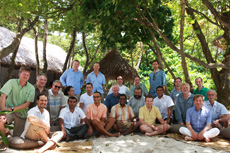Preliminary debate today over the proposed Domestic Violence Bill has MPs optimistic it will be passed, after it is sent to a special committee to refine the particulars.
“It will most definitely be passed – there are a few things we must keep in mind but there is nothing contentious about it,” said Eva Abdulla, MP for the ruling Maldivian Democratic Party (MDP).
“We need to ensure it fits with international best practice, and ensure sufficient budget allocation for each step, as without sufficent budget things like the protective services mentioned in the bill become futile.”
Eva noted that the bill also needed to categorise different offenses, “as sweeping criminal offences do not fully protect the victims and can often discourage the reporting of offenses.”
“The draft bill is very good, however it only becomes meaningful if we can meet it with the necessary human and financial resources,” she added.
Opposition Dhivehi Rayyithunge Party (DRP) MP Rozaina Adam, who presented the bill to parliament, noted that both major parties were working together on getting the bill passed, and would likely vote to send it to a special committee tomorrow.
“Some MPs are finding it hard to accept that this is about violence against women, and are trying to twist it by saying violence also occurs against men. But most accept it,” she said.
Health authorities identify domestic violence as a major problem in the country. Rozaina noted that it was difficult to obtain figures because of a lack of reporting: “a lot of women accept it as if it’s their due.”
If passed, the bill would require monitoring of domestic violence cases and the publication of figures at the end of each year.
“Right now people don’t report it, and people are reluctant to make bring very personal family issues public,” Rozaina said. “We hope that NGOs and the health sector can become more involved, rather than people having to go to the police all the time.”
Deputy Minister for Health Mariya Ali said that the Ministry received 100 cases of reported domestic violence last year, “and so far this year we are already up to 100. It is a significant problem, and I don’t think this reflects the true prevalence,” she said, adding that more women were likely to come forward once the Ministry had completed work on a temporary shelter, hopefully by November.
“This bill will bring positive changes to the lives of women,” she added.
The DRP announced it was drafting a bill on domestic violence in April, hoping to create more comprehensive legislation for victims and perpetrators of violence in the home.
The bill would encompasses legislation on both physical and sexual violence against women and children, as well as improve how people who report these cases are dealt with, and to give more security and assistance to anyone affected by domestic violence.
Former president Maumoon Abdul Gayoom’s daughter and leader of the DRP’s Women’s Wing, Dhunya Maumoon, first announced the drafting of the bill.
In November last year MPs signed a declaration supporting the elimination of violence against women, recognising the problem of domestic violence facing the Maldives and undertaking to bear it in mind when legislating.
The signing marked the 10th anniversary of the International Day for the Elimination of Violence Against Women, a UN-led initiative to encourage countries to create and enforce laws punishing violence against women and girls, increase public awareness and strengthen collection of data on the issue.
In April 2007, a student who was the subject of a sexual assault by her teacher spoke to Minivan News about the incident and how she felt justice had betrayed her.
